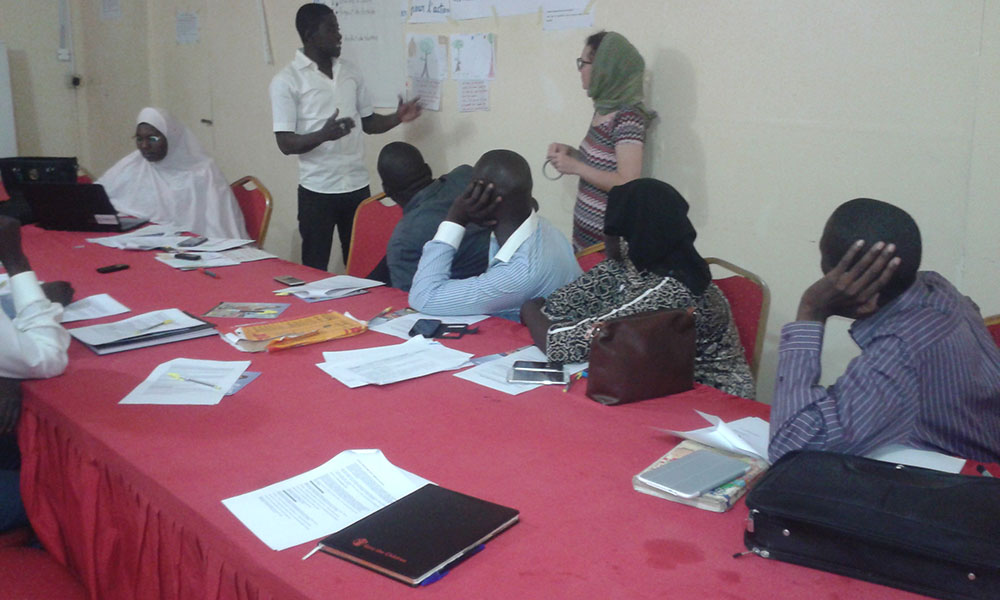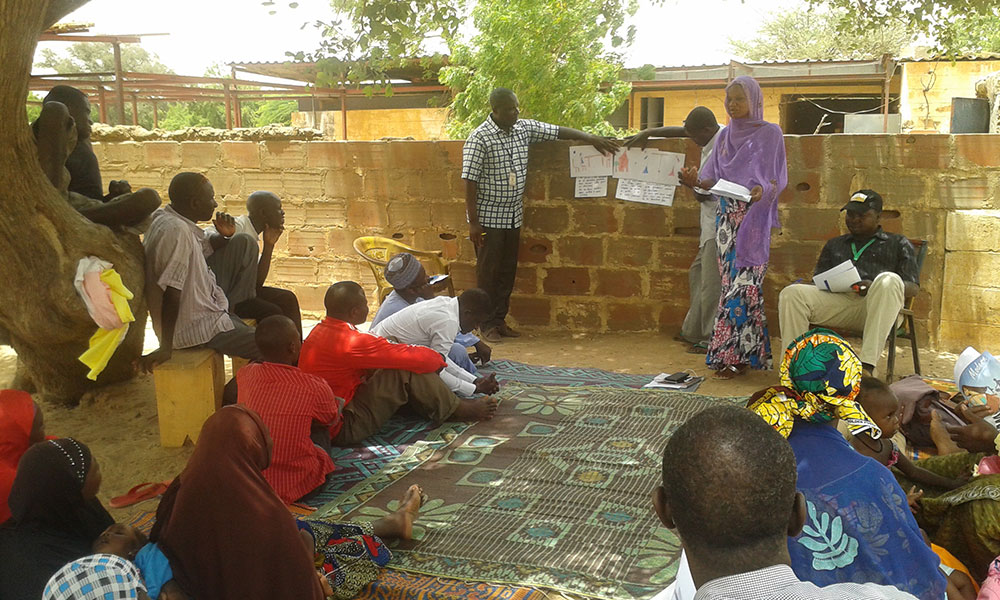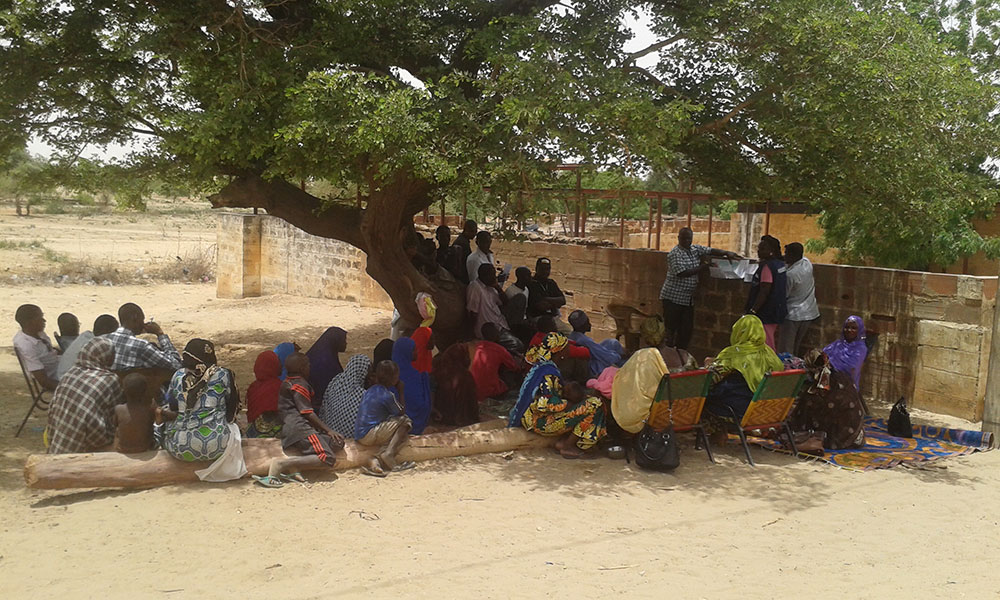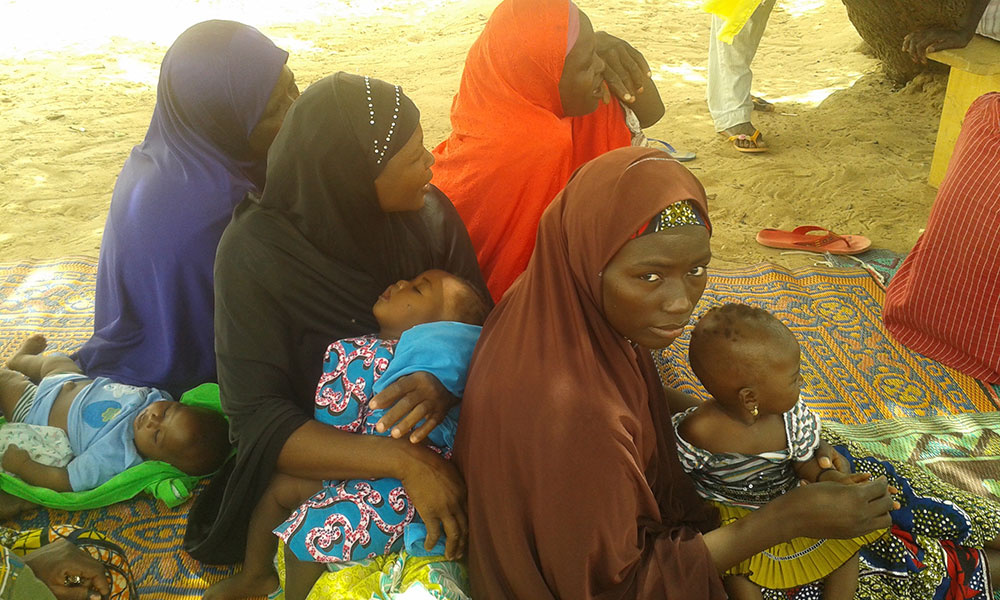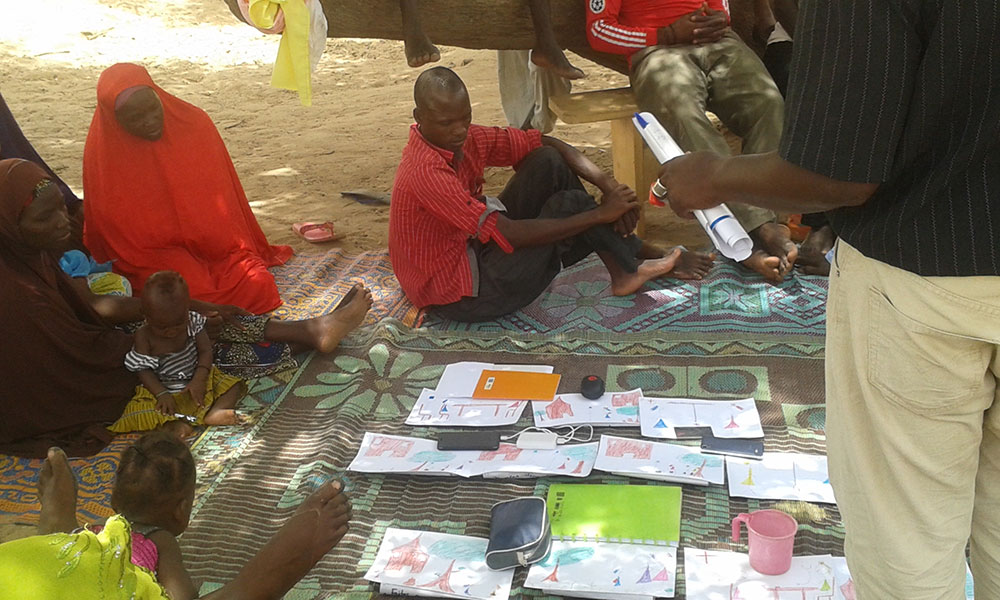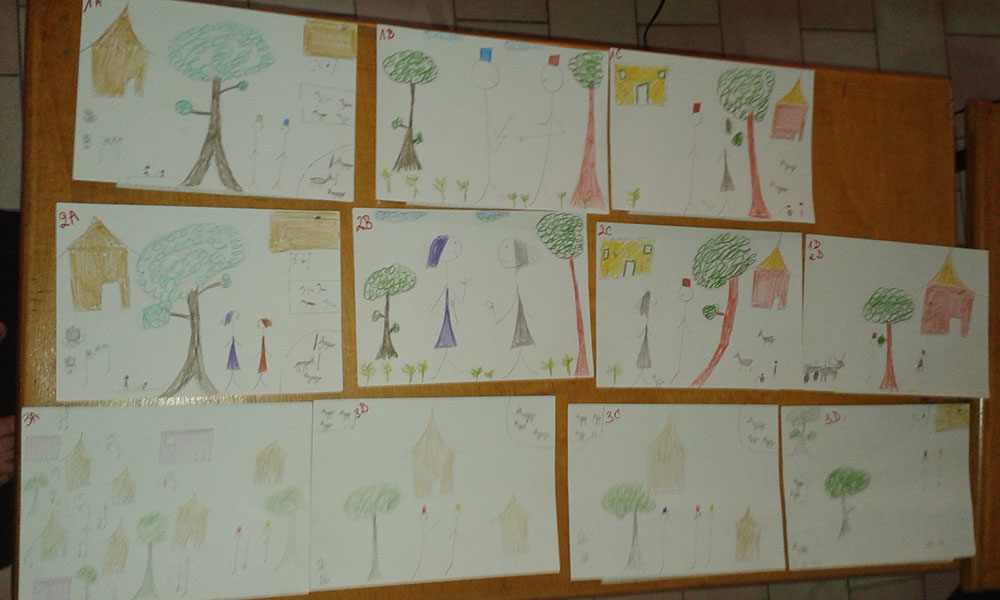In June 2016, SPRING and Digital Green conducted community video concept testing in two regions in Niger. Facilitators used image cards to collect feedback on scenarios for nutrition and hygiene-focused videos from a total of 14 women and 12 men in Droum Kafé and El Kolta villages. The facilitators solicited feedback that reflected the participants’ understanding of the promoted behaviors, their perception of feasibility in their communities, and their suggestions for adjustments to the story lines.
